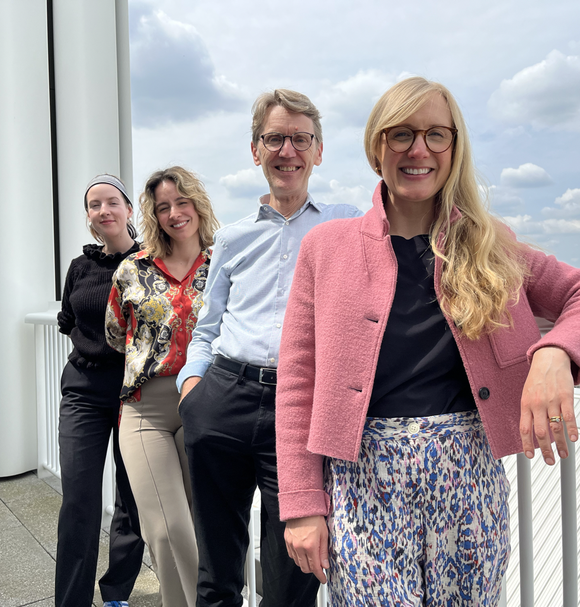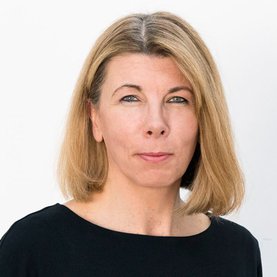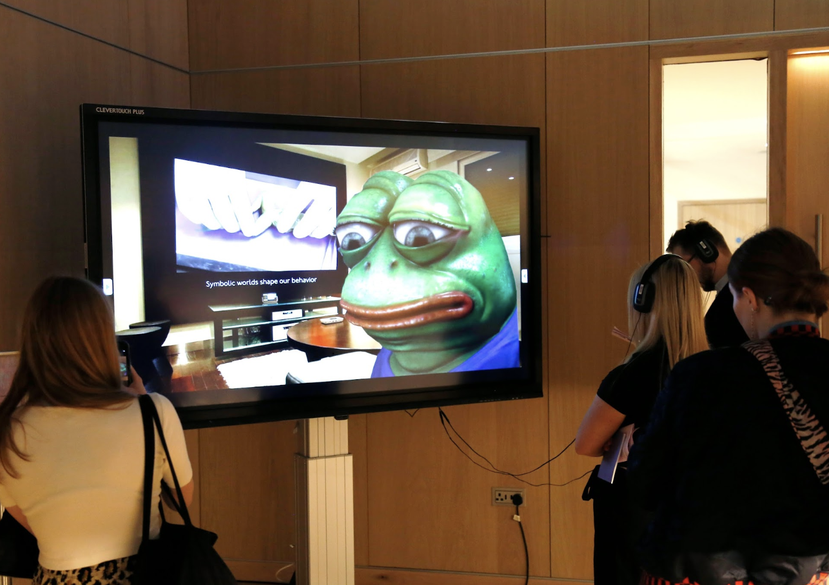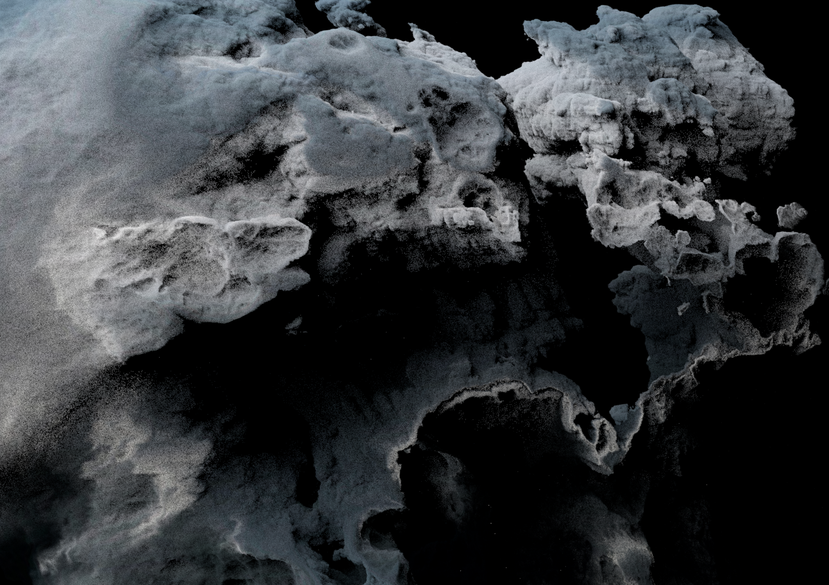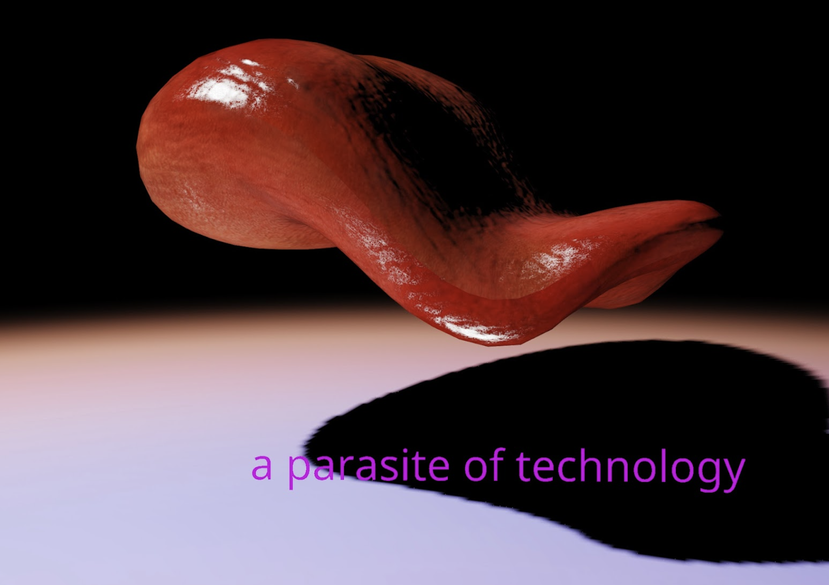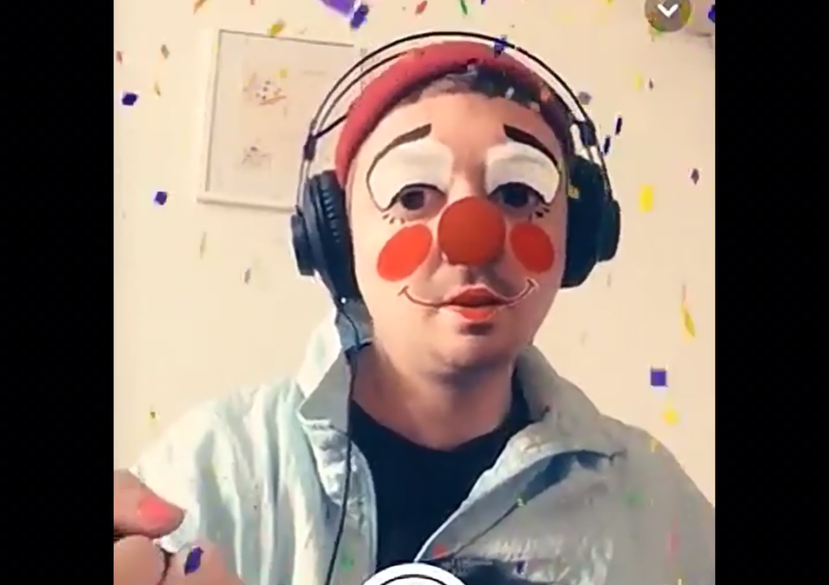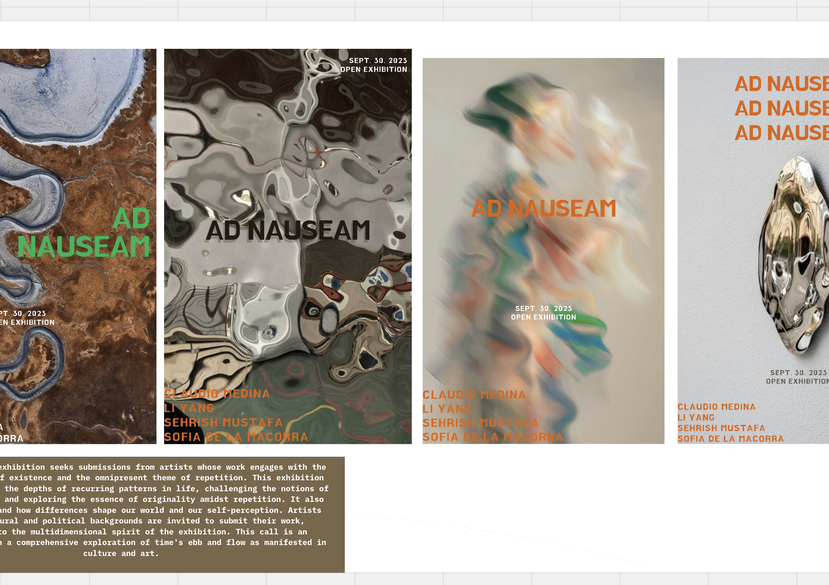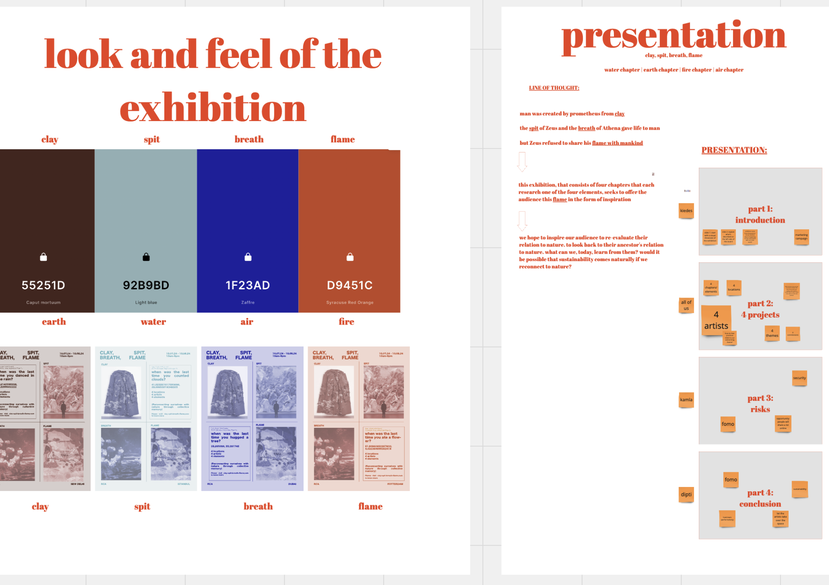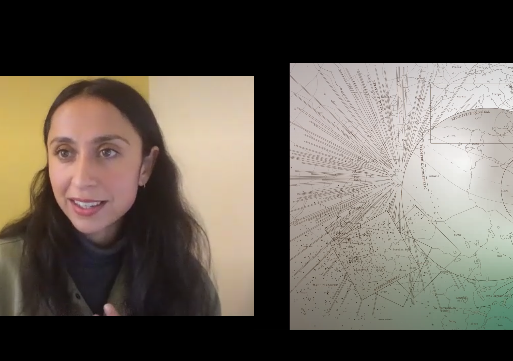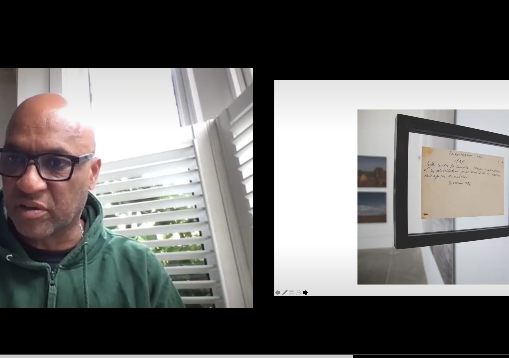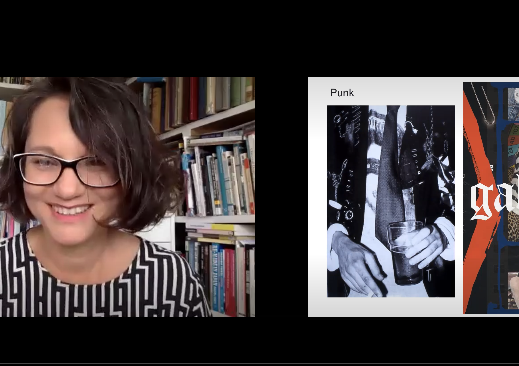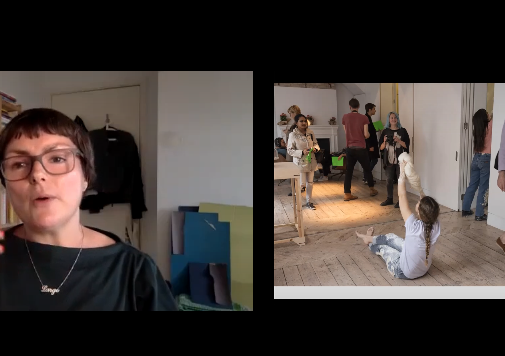
Curating After the Internet: New Media and Digital Cultures, with sector leading curators, artists, researchers and writers.
Key details
Fees
- Regular fee: £1750
- FULLY BOOKED FOR 2024
Location
-
Live Online
10 sessions over 2 weeks
Week 1: 8–12 July 2024
Week 2: 15–19 July 2024
3.5 hours a day 10am – 1.30pm BST
FULLY BOOKED

The live online short course provides an intensive introduction to contemporary curatorial thinking and practice in art and design. The 2024 course theme, 'Curating After the Internet: New Media and Digital Cultures', addresses the questions and shifts in curatorial practice posed by network cultures and emerging digital technologies.
Curating Contemporary Art and Design: Theory and Practice offers critical perspectives from the viewpoint of experts who curate, research and write in the cultural sector, with opportunities for participants to engage with cutting-edge curatorial approaches.
Through in-depth discussions with pioneering curators, participants are introduced to modes of curating and commissioning contemporary art across the museum, the gallery, the public realm, and the online environment.
Led by the School of Arts & Humanities, guest speakers on the 2024 programme include:
- Michael Connor (Curator and Co-Director of Rhizome at the New Museum)
- Bassam El Baroni (Curator, Researcher and Associate Professor in the Department of Art and Media at Aalto University)
- Katrina Sluis (Curator, Researcher and Head of Photography and Media Arts at ANU School of Art and Design)
- Joshua Citarella (Artist and internet culture Researcher)
- Larry Achiampong and David Blandy (Artists)
- Damien Roach (Artist and Researcher)
- Gary Zhexi Zhang (Writer and Artist)
- Nóra Ó Murchú (Curator and Artistic Director of Transmediale)
- Lucy Sollitt (Creative Director of Future Everything)
- UBERMORGEN (Artist collective)
- Kim-Leigh Pontin, Art Manager, Meta Reality Labs
- Matthew Horsfall, Curator of Game Technologies, Science Museum
As a forum for learning in a collaborative, highly dynamic and participatory atmosphere, the course combines analytical debate with online workshops, group activities and practice-led approaches taught by the world’s leading art and design university.
Touching upon questions of aesthetics, ethics, specialism, value and collaboration, the course will provide the tools to navigate the complexities of curating ‘the contemporary’ whilst offering new directions and scope to innovative curatorial practice.
Above image credit: Lisa Hall and Hannah Kemp-Welch, We are just animals, humans, and machines getting on together in specific lifeworlds. Site-specific sound work in Finsbury Park made for mobile phones, Furtherfield, London. MA Curating Contemporary Art Graduate Project 2021.
Applications for summer 2024 are now closed.
Please register your interest for future course dates.
About the course
Course theme and structure
Course theme for 2024
Curating After the Internet: New Media and Digital Cultures
Tailored to established and future curators, artists, and professionals in the contemporary art field, this year's summer course addresses the questions and shifts in curatorial practice posed by network cultures and emerging digital technologies. Through in-depth conversations with leading curators, artists, critics, media theorists and institutions, the sessions will explore post-internet conditions of art production and distribution to reflect on the role of the curator in an increasingly hyperconnected landscape.
From examining how curatorial and artistic value is created online in our attention economy, and how platforms influence content curation amidst the complexities of censorship and shadowbanning, to the challenges presented by algorithmic curation and AI, the course will explore how emerging media are reshaping the conditions of curating and art-making.
Participants will delve into analysing emerging models of distributed curatorship and engage in critical conversations on the financialisation of cultural and creative work in the creators’ economy, tokenisation, the impact of social media on art criticism, and how art institutions are adapting to these emerging conditions.
The course responds to the urgency to provide new curatorial pathways beyond the established hierarchical organisation of creative practice and towards collaborative and distributed models of knowledge exchange within and beyond the field of art.
Touching upon questions of aesthetics, ethics, specialism, value and collaboration, the course will provide the tools to navigate the complexities of curating ‘the contemporary’ whilst offering new directions and scope to innovative curatorial practice.
Curating Contemporary Art and Design: Theory and Practice at the RCA
The Curating Contemporary Art and Design short course has been running successfully since 2016. As well as experts from the Royal College of Art, previous years have included sessions with renowned curators and researchers from Tate, Victoria and Albert Museum, Serpentine, Design Museum, Somerset House, the Museum of Modern Art and influential contemporary galleries and commissioners such as Art on the Underground, Eastside Projects, Open School East, Cubitt Gallery and UP Projects.
Personal and organisational benefits
Benefits include:
- Exploring a range of fine art and design disciplines in international contexts
- Access to curators, critics, researchers, historians and writers
- Learning in a collaborative, highly dynamic atmosphere through an interdisciplinary approach
- Interaction and networking with international peers from different backgrounds
- Certificate of online attendance
Since 2016, we have welcomed participants from Singapore's Asian Civilisations Museum, Budapest's Museum of Applied Arts, the Al Qasimi Foundation for Policy Research, the Calouste Gulbenkian Foundation, the Hong Kong Trade Development Council, the Sharjah Art Foundation, the Warwick Arts Centre and the Design Trust, Gabriel Caruana Foundation, Daiwa Foundation, Arusha Gallery to name a few.
What will I learn?
- You will learn about current debates in art and design by engaging with professionals working at the forefront of the field.
- You will learn about the latest developments in contemporary critical and curatorial practice by encountering a range of institutions, exhibitions and curated programmes.
- You will learn how curatorial projects are conceived, researched and delivered.
- You will learn how to develop and pitch curatorial project ideas.
- You will learn how to work collaboratively.
How will you learn?
Learning takes place through a dynamic 10-day programme, delivered over two weeks. Each day features at least two sessions, comprising three-and-a-half hours of live interaction.
In these sessions, participants are taught as a group and work in smaller teams.
The sessions are delivered by RCA tutors and invited experts, including curators, artists and cultural practitioners.
These sessions feature:
- Seminars
- Presentations
- Workshops
- Encounters with exhibitions and institutions
- Collaborative group work and group discussion
- In-depth feedback through ‘crits’
- Project development and presentations
Course contributors
The course is convened by Course Leader Linda Rocco, PhD researcher, School of Arts & Humanities at the Royal College of Art and overseen by Professor Victoria Walsh, Head of Programme for MA Curating Contemporary Art.
The course contributors for the 2024 programme include:
- Michael Connor (Curator and Co-Director of Rhizome at the New Museum)
- Bassam El Baroni (Curator, Researcher and Associate Professor in the Department of Art and Media at Aalto University)
- Katrina Sluis (Curator, Researcher and Head of Photography and Media Arts at ANU School of Art and Design)
- Joshua Citarella (Artist and internet culture Researcher)
- Larry Achiampong and David Blandy (Artists)
- Damien Roach (Artist and Researcher)
- Gary Zhexi Zhang (Writer and Artist)
- Nóra Ó Murchú (Curator and Artistic Director of Transmediale)
- Lucy Sollitt (Creative Director of Future Everything)
- UBERMORGEN (Artist collective)
- Kim-Leigh Pontin, Art Manager, Meta Reality Labs
- Matthew Horsfall, Curator of Game Technologies, Science Museum
Disclaimer: The list of contributors is subject to change depending on availability.
Online delivery
The course is organised in synchronous sessions in a live virtual environment that combines various digital platforms and tools.
Zoom
Using the videoconferencing service Zoom, RCA tutors and invited experts deliver a mix of:
- Seminars
- Presentations
- Workshops
- Collaborative group work and group discussion
- In-depth feedback through ‘crits’
- Project development and presentations
- Participants interact with the faculty and peers in breakout rooms in real-time
Miro
Participants engage in cross-functional teamwork with the use of visual collaboration tools.
Through the online whiteboard platform Miro, participants get to:
- interact with various formats and templates
- plan and brainstorm ideas
- create processes and workshop activities in the digital workspace.
Moodle
The College's learning platform Moodle is personalised according to the course's requirements to provide participants with a secure integrated system where they can access the course content.
The hub hosts a wide range of useful resources to enhance the learning experience, including comprehensive timetables, pre-reading materials, course slides, curated videos, tutorials, and session recordings.
Slack
Participants stay connected and communicate via the channel-based messaging platform Slack throughout the course.
In this space, academics, facilitators, and delegates can network, plan the course activities, and share documents and files during live sessions or offline.
Course outcomes
Participants will learn to:
- Engage with current debates in art and design.
- Explore contemporary critical and curatorial practice.
- Understand how curatorial projects are conceived, researched and delivered.
- Learn how to develop and pitch project ideas.
- Learn how to work collaboratively.
Who should attend?
- Art and design graduates.
- Early- and mid-career professionals from the cultural sector.
- Curators and arts programmers.
- Artists and designers.
- Writers.
- Researchers.
Admission criteria
Participants must:
- Have a successful application.
- Have an undergraduate degree.
- Have a good level of English language.
- Be 21 years or over.
Application Process
The applications for summer 2024 are now CLOSED.
How do I apply?
The online form requires you to submit a:
- 300-word statement explaining relevant professional and/or academic experience and outlining your interest in the course.
- CV
Application notes
- Please name the CV file before uploading using the following naming convention: Full Name_CV_2024 Curating Application
- Once you submit your application you will not be able to make changes.
- Only applications submitted via the online form will be accepted.
- Applications that are not complete or exceed the maximum file size will not be considered.
If your application is accepted you will be emailed with a booking link. A deadline for accepting and paying for your place will be provided in the email. The place will be held until this deadline, if you do not make payment by this date then your place will be released and offered to another participant.
Application deadlines 2024
- Participants are advised to apply early to avoid disappointment as places are strictly limited.
- We will start accepting applications from mid-January 2024.
- First round of applications will be assessed from the end of January 2024.
- Applications will be assessed by the RCA course team every 2 weeks from January 2024 until June 2024 or until the course is fully booked. We will inform all applicants by email within two weeks after they submit an application about whether or not they have been successful.
- Unfortunately we do not provide further feedback information.
- If the course is fully booked and your application is successful we will add your name to a waiting list.
How will I know that my place is confirmed?
The offer of a place will only be secured and confirmed when the RCA receives 100 per cent of the course fee payment. Places are secured on a first-come basis on receipt of appropriate payment.
How can I pay for the course?
The course needs to be paid in full by one instalment and via the online payment system using a debit or credit card. Once you are offered a place on the course you will receive a secure online booking link. Please complete the registration and booking process to make the booking. Please ensure that you are using the most up to date version of your internet browser. We regret that it is not possible to pay the course fee by instalments.
Course team
Gallery
Contact us
Get in touch with Jo Chounta if you'd like to find out more about this or any of our other short courses.
[email protected]
